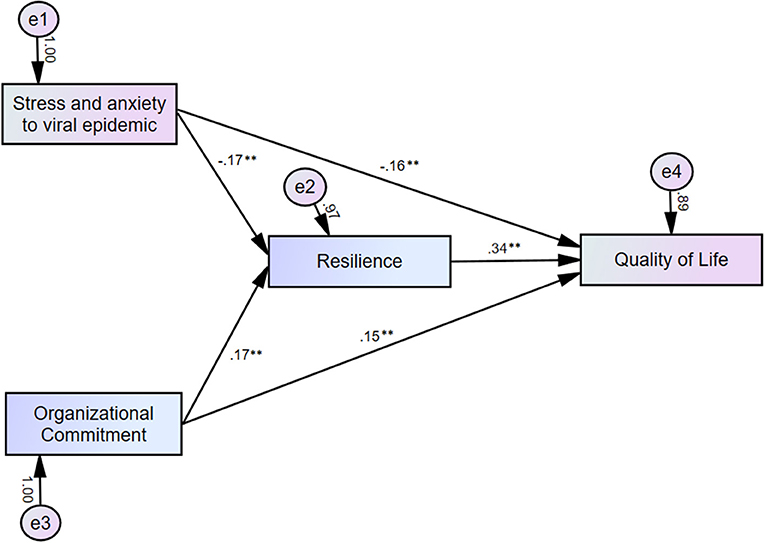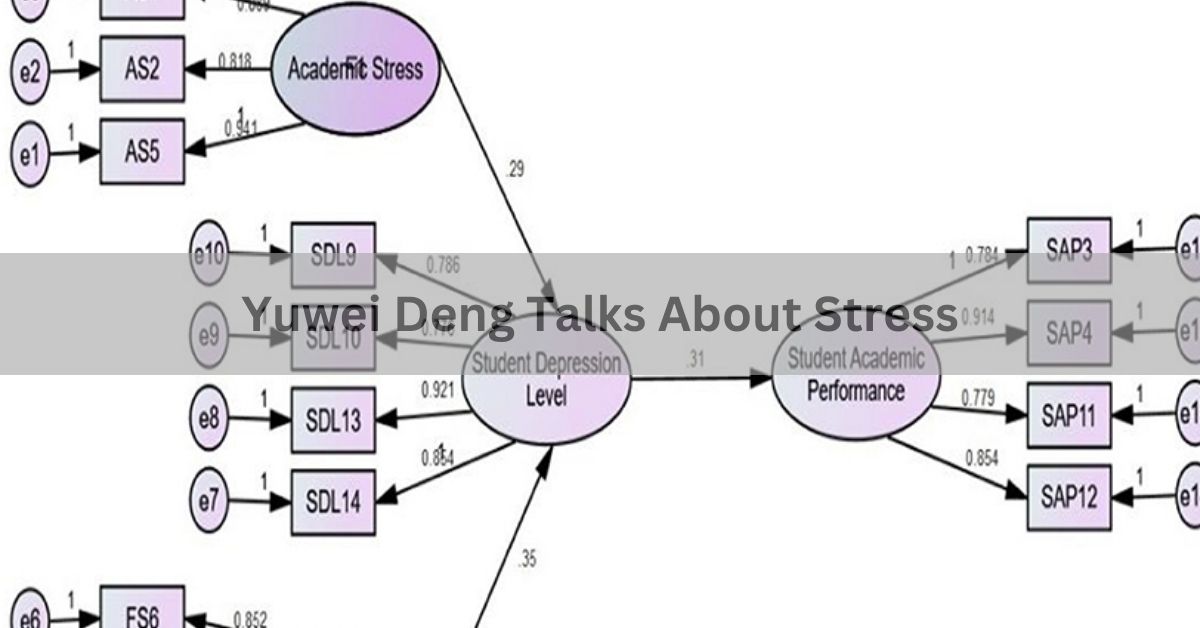Yuwei Deng Talks About Stress – Understanding Its Impact and Coping Mechanisms!
Stress is a common part of modern life, affecting people from all walks of life. Whether it’s work-related pressure, personal struggles, or health concerns, managing stress has become essential for maintaining mental and physical well-being. Yuwei Deng, a respected expert in the field of psychology and wellness, shares valuable insights on understanding stress, its impact on the body and mind, and strategies to manage and reduce it.
In this article, we’ll delve into Yuwei Deng’s perspective on stress, how it affects individuals, and practical steps that can help in navigating and overcoming stress effectively.
What is Stress?

Stress is the body’s natural response to any form of demand or challenge. It can be triggered by both positive and negative situations, such as a new job, a big presentation, a breakup, or financial difficulties. Stress causes the body to release hormones like adrenaline and cortisol, preparing it for a “fight-or-flight” response. While short-term stress can be motivating and energizing, prolonged or chronic stress can have serious health consequences.
Yuwei Deng emphasizes the importance of understanding the root causes of stress to better cope with its effects. She explains that stress can stem from both external and internal factors. External stressors include work pressures, relationship issues, or major life changes. Internal stressors are often linked to how individuals perceive and react to situations, such as negative self-talk, perfectionism, or unrealistic expectations.
The Impact of Stress on Mental and Physical Health
According to Yuwei Deng, stress can have a significant impact on both mental and physical health. When stress becomes chronic, it can lead to a range of health issues, including anxiety, depression, insomnia, and burnout. Furthermore, the prolonged release of stress hormones can weaken the immune system, increase blood pressure, and contribute to heart disease, digestive issues, and even obesity.
In her work, Yuwei Deng stresses the importance of addressing stress before it takes a toll on the body and mind. Stress can create a cycle where individuals feel overwhelmed, which in turn affects their ability to focus, make decisions, and maintain healthy relationships. Identifying the early signs of stress, such as irritability, fatigue, and difficulty concentrating, is the first step in breaking this cycle.
Coping Mechanisms: How to Manage Stress Effectively
Yuwei Deng shares several strategies for managing and reducing stress. These techniques focus on building resilience, improving self-awareness, and fostering positive habits to mitigate the effects of stress. Here are some of her key recommendations:
1. Mindfulness and Meditation
Practicing mindfulness involves being present in the moment without judgment. Yuwei Deng suggests incorporating mindfulness and meditation into daily routines to help reduce stress. These practices allow individuals to focus on their breath, clear their minds, and create a sense of calm. Even just a few minutes a day can significantly lower stress levels and improve mental clarity.
2. Physical Activity and Exercise
Regular physical activity is a powerful tool for combating stress. Exercise helps release endorphins, which are natural mood elevators. Yuwei Deng encourages people to find activities they enjoy, whether it’s yoga, walking, swimming, or dancing. The key is consistency, as regular movement can help the body handle stress more effectively.
3. Social Support
Talking to friends, family, or colleagues about stress can be incredibly therapeutic. Yuwei Deng highlights the importance of social support in managing stress. Being able to share feelings and receive empathy and advice can help reduce the emotional burden and provide new perspectives on stressors.
4. Time Management
Poor time management is a common stress trigger, especially in high-pressure environments. Yuwei Deng advises individuals to prioritize tasks, break projects into smaller steps, and set realistic goals. Time management tools, such as to-do lists or digital calendars, can help create a structured approach to reducing stress.
5. Healthy Lifestyle Choices
Yuwei Deng also stresses the significance of a balanced lifestyle in stress management. Getting enough sleep, eating a healthy diet, and avoiding excessive alcohol or caffeine can have a profound impact on stress levels. Maintaining a healthy routine ensures the body has the energy and stamina to handle daily challenges more effectively.
6. Professional Help and Therapy
When stress becomes overwhelming, seeking professional help is a crucial step. Yuwei Deng emphasizes that therapy, counseling, or coaching can offer individuals tools and strategies to cope with stress in healthier ways. Professionals can provide personalized support tailored to one’s unique circumstances.
Yuwei Deng’s Philosophy on Stress Management
Yuwei Deng believes that stress is an inevitable part of life, but it doesn’t have to control us. She advocates for a holistic approach to stress management that includes mental, emotional, and physical well-being. By integrating mindfulness, healthy habits, and proper coping techniques into daily life, individuals can manage stress more effectively and build resilience.
Her philosophy is built on the idea that individuals have the power to choose how they respond to stressors. Through self-awareness, introspection, and the use of practical tools, stress can be transformed from a destructive force into a catalyst for personal growth and positive change.
FAQ’s
1. What is stress, according to Yuwei Deng?
Stress is the body’s natural response to any demand or challenge, whether positive or negative. It triggers the release of hormones like adrenaline and cortisol, preparing the body for a “fight-or-flight” response.
2. How does stress affect mental and physical health?
Chronic stress can lead to anxiety, depression, insomnia, and burnout. It can also weaken the immune system, increase blood pressure, and contribute to heart disease, digestive issues, and obesity.
3. What are some effective coping strategies for managing stress?
Yuwei Deng recommends mindfulness and meditation, regular physical activity, social support, time management, healthy lifestyle choices, and seeking professional help when needed.
4. How can mindfulness and meditation reduce stress?
Mindfulness and meditation help individuals focus on the present moment, clear their minds, and create a sense of calm, which significantly lowers stress levels and improves mental clarity.
5. Why is professional help important in managing stress?
Professional therapy, counseling, or coaching can provide personalized support and strategies to cope with stress in healthier ways, especially when stress becomes overwhelming.
Conclusion: Embracing a Balanced Life
Stress is an unavoidable part of life, but it doesn’t have to overwhelm us. As Yuwei Deng highlights, understanding the sources of stress and learning how to manage it effectively can make a world of difference. By adopting healthy habits, practicing mindfulness, and seeking support when needed, individuals can not only reduce stress but also increase their resilience and overall well-being. Taking proactive steps to manage stress leads to better mental and physical health, improved productivity, and a greater sense of peace. As we navigate through life’s challenges, embracing stress management strategies can empower us to live a more balanced and fulfilling life.














Post Comment